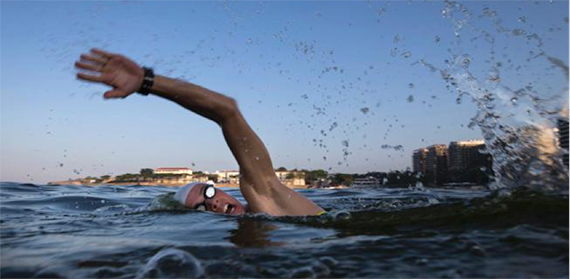Photo: US News
By David Cook
Assistant Lecturer in Marketing & Advertising
Researcher on the Carnival project, Centre for Business in Society and School of Marketing and Management.
‘As the Rio 2016 Olympics draw ever closer, the latest media stories continue to raise concerns that the health of competing athletes is set to be put at risk.
Like other sporting mega events, the Rio 2016 Olympics are an attractive news story, featuring an unpredictable event occurring within a predictable time frame. You could say that the coverage like watching an episode of your favourite soap opera – you’re not sure exactly what’s going to happen, but you know it’ll all be over in half an hour!
With less than a year to go until the opening ceremony, it has been widely reported that the coastal bays of Rio de Janeiro remain dangerously intoxicated with bacteria and viruses. These reports suggest that Brazil is in danger of failing to deliver even the most basic requirement of a mega sporting event; participants being provided with an adequate, safe environment in which to compete.
According to the latest research, media coverage of sporting mega events transitions between several ‘phases’:
- the first stage is prior to a decision being made to bid to host an event
- the bidding process itself
- the awarding of an event to the successful bidder
- the build-up to the event, the ‘games time’
- the immediate period after an event
- finally, the longer term ‘legacy’.
During the ‘build-up’ phase of media coverage, which is where we presently find ourselves, there are likely to be two key questions asked: “will it go over budget?” and “will everything be ready on time?” (Horne, 2014). These are essentially negatively framed questions that can provoke the kind of adverse stories that we are witnessing in media reports at the moment. For instance, in the build up to London 2012, a multitude of similarly downbeat stories appeared, focusing on concerns and criticism over factors such as legacy obligations, anti-terrorism, security resources, transport, the ticketing procedure, and of course, why on earth David Beckham wasn’t selected in the GB football squad!?
However, despite this, media outlets that displayed pre-event scepticism, such as several of the broadsheets, generally became swept along in the euphoria of the games themselves and contributed towards the development of the hugely successful ‘Team GB’ brand, itself an enduring legacy of the London Games.
Whilst the news of the poor state of Rio’s waterways is nothing new, the apparent lack of any significant attempts to improve their condition ahead of the Games is somewhat surprising and concerning. Much of the event management science focuses on the importance of planning for organisers, with the general consensus that this involves different ‘life-cycle’ stages, and that responsibility for both the ongoing and long-term management of financial and physical legacies should be taken by a collective of key stakeholder groups, such as organising committees, local and national governments, and governing bodies. As part of its Olympic bid, Brazil promised to build eight treatment facilities to filter out much of the sewage and waste from Guanabara Bay, yet just one has been built.
According to a recent BBC report, government officials have stated there is no chance of the bay being cleaned up before the Games, but as the Rio Mayor laments a ‘wasted opportunity’ for desperately-needed improvement, all is not lost. Rio’s official website speaks about the ‘infectious energy’ needed to plan and prepare for the Olympics, and the colourful vibrancy for which Brazil is best known must remain at the heart of the event. Whilst clearly undesirable, the current stories are not likely to leave a lasting negative effect on the Rio or Olympic brands. The Rio Games could still be infectious for all the right reasons.’
The Carnival project research is supported by a Marie Curie International Research Staff Exchange Scheme Fellowship within the 7th European Community Framework Programme.




Comments are disabled